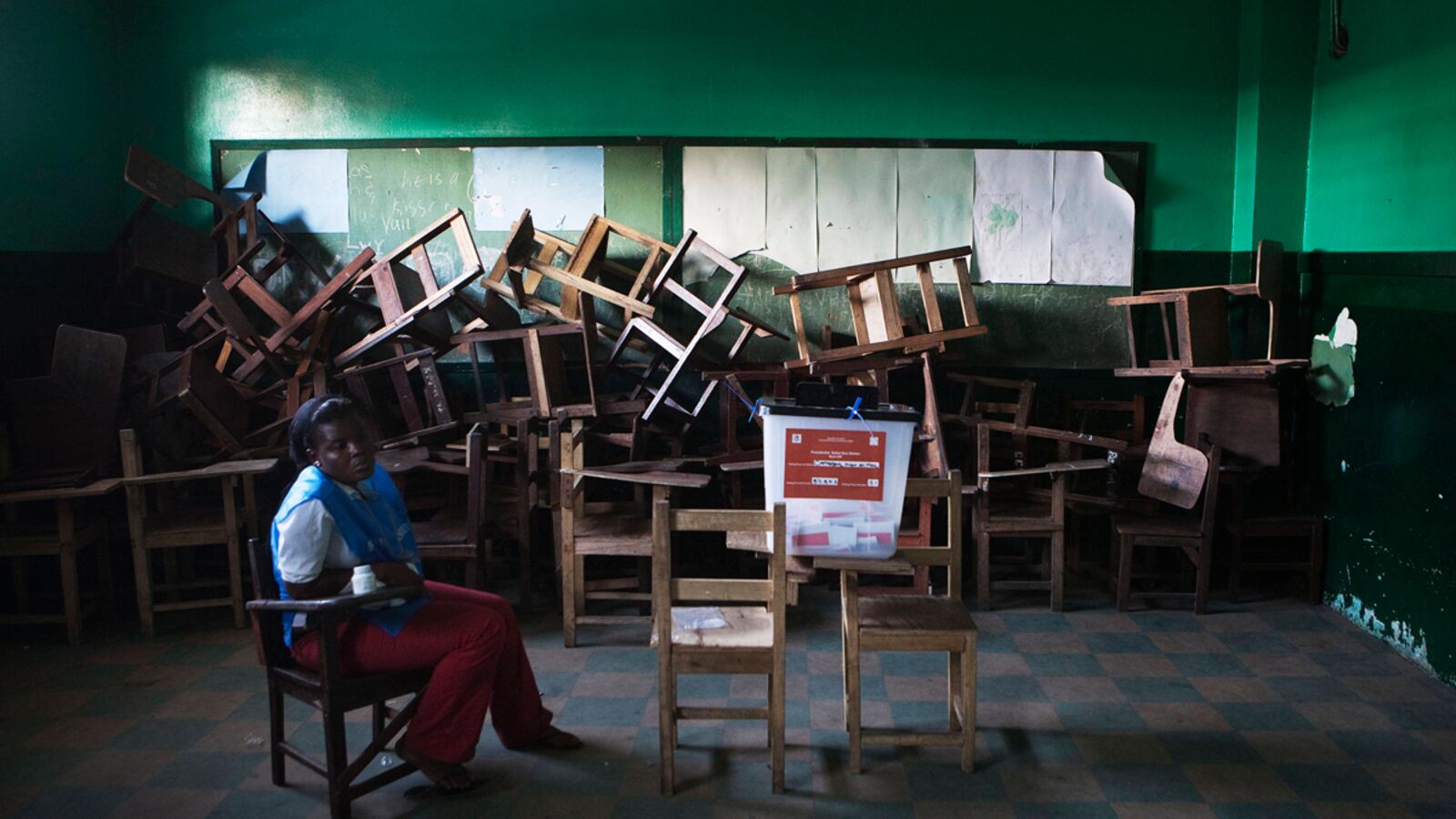Today Liberians go to the polls in what will be a defining moment for their tenuous democracy. In a region bristling with weapons and tension, Liberia has managed eight years of peace and economic growth. The last five of them have been under the leadership of President Ellen Johnson Sirleaf, the first democratically elected woman serving as a head of state in Africa, and one of last month’s Nobel Peace Prize laureates. She is heavily favored to win the country’s runoff election today. And to everyone’s great relief, the atmosphere surrounding the election season has been mostly peaceful.
Until yesterday. Yesterday, Johnson Sirleaf’s challenger, Winston Tubman, and his vice-presidential pick, George Weah, in a desperate ploy to win an election they know they are about to lose, called for their supporters to rally at their election headquarters and to boycott the runoff vote. Their actions triggered a series of skirmishes with Liberian police forces and U.N. peacekeepers, which sowed fear among prospective voters. Ultimately, it led to the death of at least one Liberian civilian—and gunshot wounds to at least five more. The violence has made global headlines, raising anxieties about Liberia’s election around the world.
But much about this story will not be widely reported by American news outlets. Last night I got a call from another 2011 Nobel Peace Prize laureate, Leymah Gbowee, who was in Monrovia for the elections. I could hear her tears through the telephone. “How could they?” she asked me. “How could they take this country back to war?” She was crying out of sorrow, but also out of rage. She had been awake all night, weeping and planning.

As the sun rose this morning—Election Day—and at great risk to her own safety, Leymah arrived at Tubman’s opposition headquarters and demanded a meeting with his party leaders. According to the African news source AFP, she and leaders met all morning and emerged to say that there would be no more violence on Election Day.
What do Leymah’s tears in the dark of night have to do with her meetings in the light of day? Everything.
Leymah demanded this meeting not as just another politician or diplomat speaking for the preservation of an established political order. Politicians do not cry. People do. Especially women. On the phone last night, Leymah told me she would take her tears with her to meet with them—to shame them, to make Johnson Sirleaf’s opponents see that what they were doing, they were doing to their mothers, sisters, and daughters. She represented the moral force of all the women of Liberia, and her calls were heard.
I would submit that the moral weight of Leymah’s tears was the only thing that might have swayed Tubman and Weah to walk away from their precarious path back to war. Leymah’s voice speaks with the full authority of the Liberian people—the women, children, and families who most suffer the consequences of abused power. And it is a voice that is missing from almost every political space we create around the world. Her example should serve as a call to American policymakers, military leaders, peacemakers, and diplomats to find a way to bring back to the dark rooms where power is wielded a voice of the heart.





